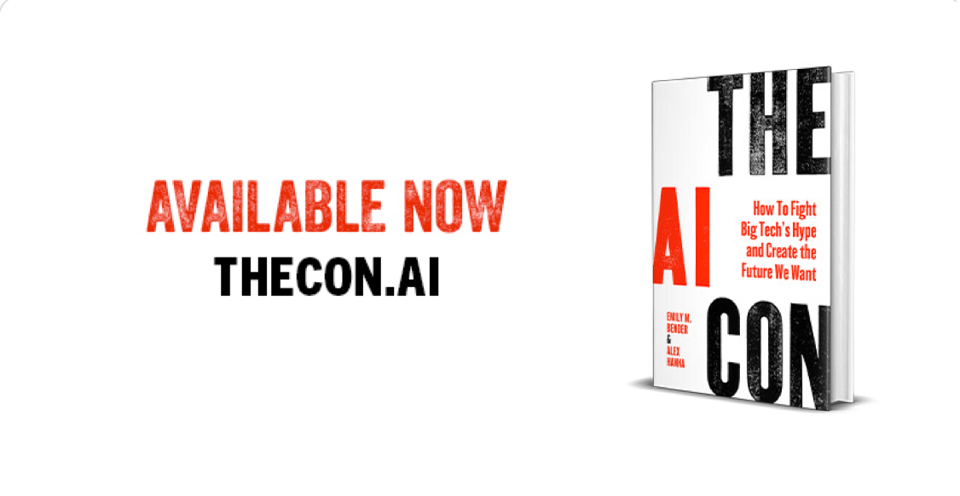"Virtual Employees" and Remixing Machines Devalue Human Work
Nadella's Arguments against Copyright Misrepresent both People and Computers
By Emily
According to Katie Prescott in The Times Microsoft CEO Satya Nadella is out there arguing that copyright laws need to be reworked to enable "transformative" technology. I wouldn't want to argue that US copyright laws are perfect or even good the way they are, but the revisions needed are ones that protect the interests of creative workers against corporations, not revisions that further the interests of corporations at the expense of creative workers.
But that's not even why I wanted to write a newsletter post about this piece. Both Nadella's arguments and Prescott's reporting on them embed some insidious dehumanization that I think is worth calling out. Prescott writes:
Speaking after Microsoft's launch of virtual employees at an event in London, he compared the situation to that of using information from textbooks to formulate new ideas. “If I read a set of textbooks and I create new knowledge, is that fair use?” he said.
Nadella is making a false equivalence between what happens when a person reads textbooks or other materials, understands the ideas there, and builds on those ideas, on the one hand, and what large language models (LLMs) do, on the other. LLMs process the text (literally as strings of letters) in order to build up representations of which word spellings are likely to show up in which contexts. People can then use these LLMs to create new sequences of word spellings that look plausible and pleasing because they reflect the co-occurrence probabilities. His argument is not only specious, but also rests on minimizing what it is to be human, have ideas, learn, interact and communicate, so that he can say that the theft by companies of creative works to train their models is simply analogous to the experience of creative works by people.
Meanwhile, in the very same paragraph, Prescott refers to "Microsoft's launch of virtual employees." In the article linked to, "virtual employees" is given in quotes. I'd like to think those are scare quotes, because it is not reasonable to refer to automated systems as "employees"—even when automation is effective enough to obviate certain job classes, the resulting system is a machine or a tool, not an employee. But in this piece, Prescott drops those quotes and thus is writing as if "virtual employees" were a sensible concept.
Another aspect of the dehumanization in both the practice of "generative AI" developers and this reporting is in the conceptualization of creative work as "data":
Intellectual property rights have proved to be a contentious issue as the development of generative AI has accelerated, pitting the creative industries against the technology sector. AI requires high-quality and reliable data in order to produce high-quality results, but that data is expensive to produce.
(Aside, because it's not really about dehumanization: if it's expensive to produce, it's valuable. Pay the people who produced it.)
It's not just Nadella who makes the arguments that creative work can and should be seen as just "data" and that statistical processing applied to that "data" is analogous to how people learn. We see it frequently from tech cos and tech bros who want to justify their data theft. It's important to be able to spot both the logical fallacies in this argument, to debunk it when it is used, but also call out and resist its inherent dehumanization. Let's not normalize these dehumanizing discourses, but rather resist them at every step.
I've done previous work on this topic, speaking specifically to cognitive scientists in Resisting Dehumanization in the Age of AI. Here's a preprint for those who hit a paywall and the talk the paper is based on.
Impatient for the next MAIHT3k episode? Join us for the livestream of Episode 44 on Monday October 28, 2024. Alex and I will be having a good laugh at OpenAI's claims about "reasoning with LLMs".
